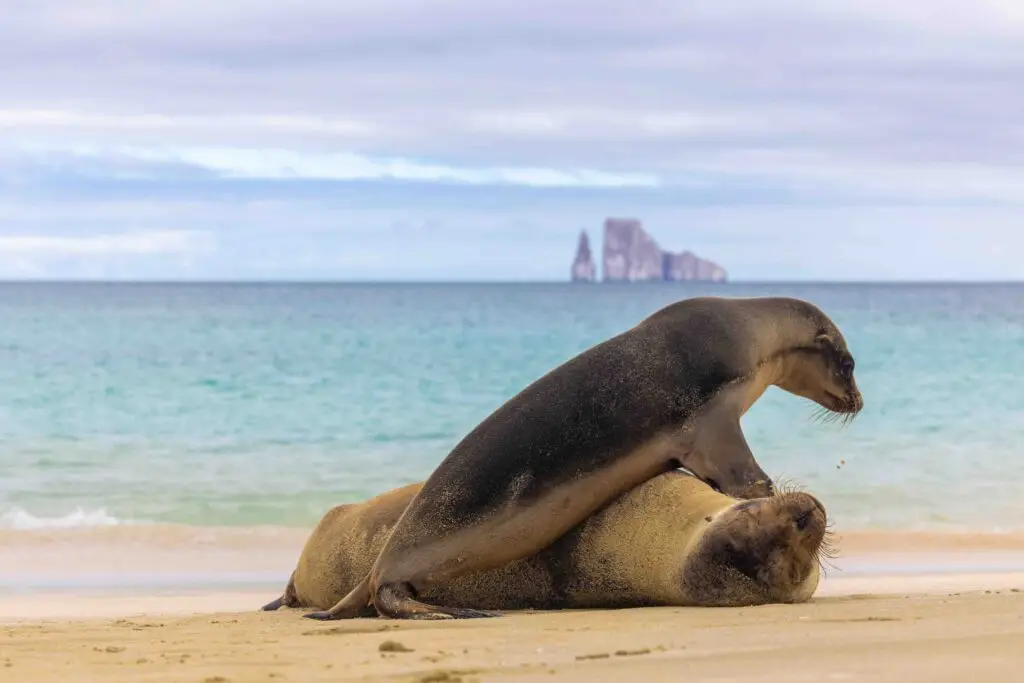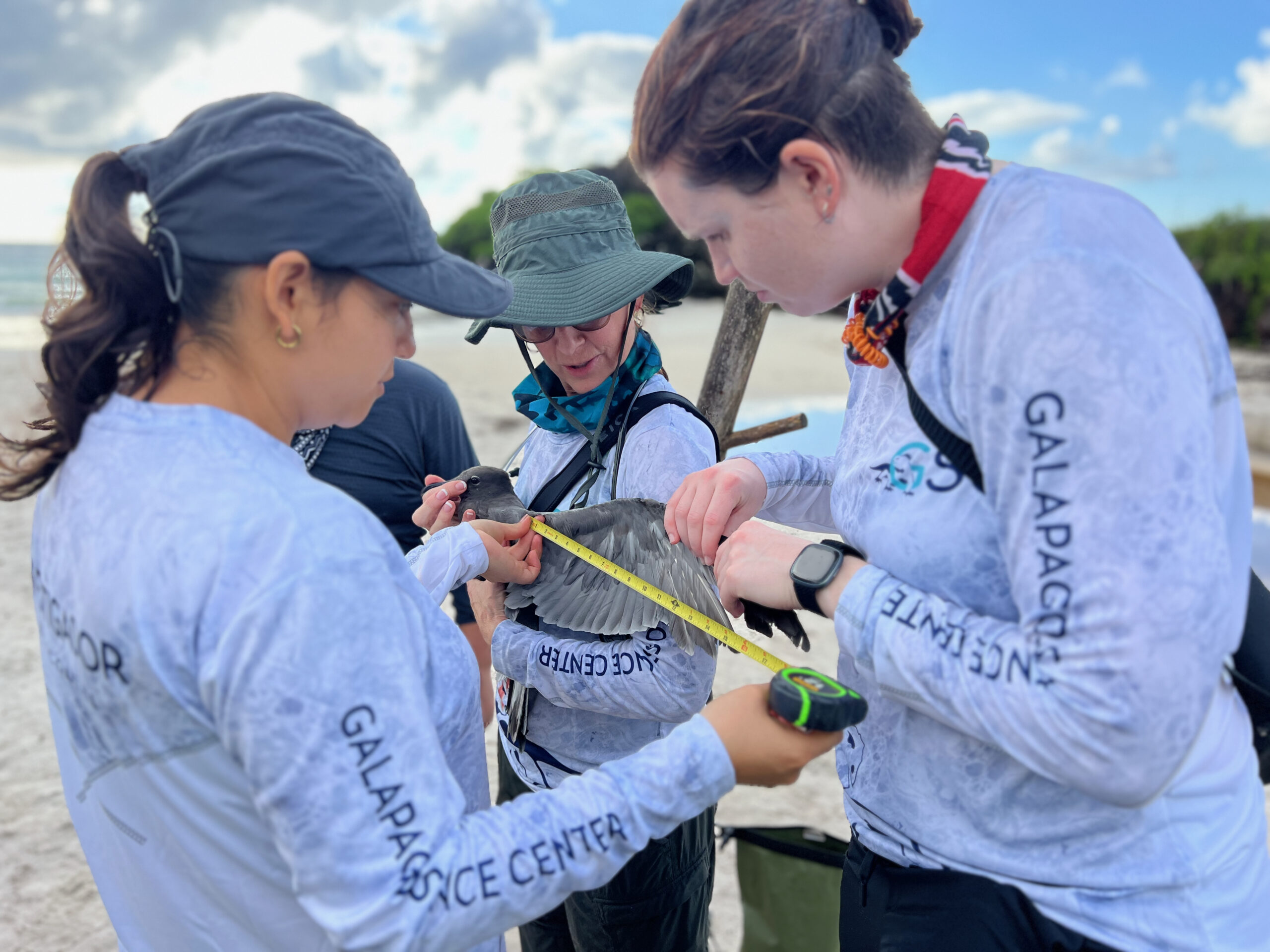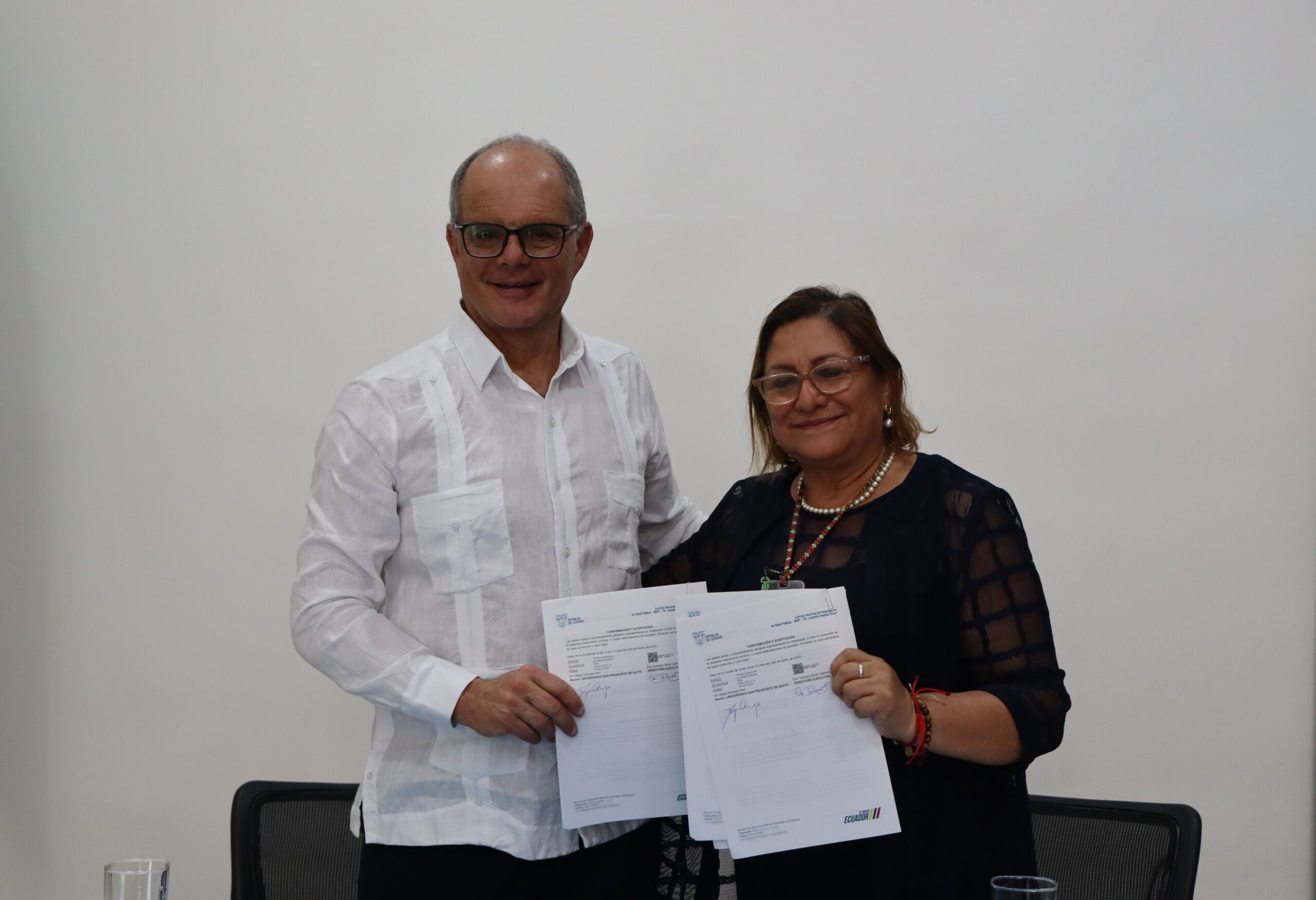Sea lions – Photograph: Andrew Russell
- This inter-institutional collaboration, with the support of the Galapagos National Park, marks a significant milestone in the archipelago by providing a specialized veterinary surveillance service and transfer of knowledge that was not previously available.
- A team of veterinarians from the Valencia Aquarium traveled to the Galapagos Islands to assess the health status of some species, track them via satellite, and gather information about their biology and migratory routes.
- The program aims to provide ongoing veterinary support to the Galapagos National Park and contribute to the conservation of critically endangered endemic species.
The San Cristóbal Island, located in the Galápagos archipelago, is known for its unique biodiversity and is the location for a conservation program promoted by Universidad San Francisco de Quito (USFQ) and the Oceanogràfic Foundation, through the Galapagos Science Center (GSC), in collaboration with the Galapagos National Park (GNP).
During the months of August, September and October a team of veterinarians from the Oceanogràfic Foundation traveled to Puerto Baquerizo Moreno to establish a veterinary health surveillance and transfer knowledge program in partnership with other institutions. The main goal is to provide support to GNP in assessing the health of some of its emblematic species, such as sea lions, land and marine turtles, sharks, and iguanas.
For Diego Páez-Rosas, professor at USFQ Galápagos and researcher at GSC, this partnership is crucial for environmental management at GNP, through the monitoring of the current status of species and the threats they face, mainly to prevent potential diseases.
“Recovery and assistance to injured or sick individuals, as well as support for breeding programs, are also part of the objectives of this veterinary service, which has been developed thanks to the experience of the professionals that work with the animals living in the Oceanogràfic marine center in Valencia,” mentioned José Luis Crespo, a researcher at the Oceanogràfic Foundation.
The program also includes knowledge transfer to strengthen the capacity of local personnel and establish action plans to ensure an effective response to any situation that could endanger the health of marine fauna. Knowledge transfer includes accompanying investigators during field activities, and providing lectures and training for members of different partner institutions.
“When we have to make a study of animal health, there’s a difference between what we can do when animals are alive or dead. When animals are alive, we guide biologists to assist them in the sample collection process. When animals are dead, we provide training on the process of a necropsy, which is essentially an autopsy on the animal. This methodology allows us to identify the cause of death,” stated Claire Simeone, a veterinarian from the Oceanogràfic Foundation.
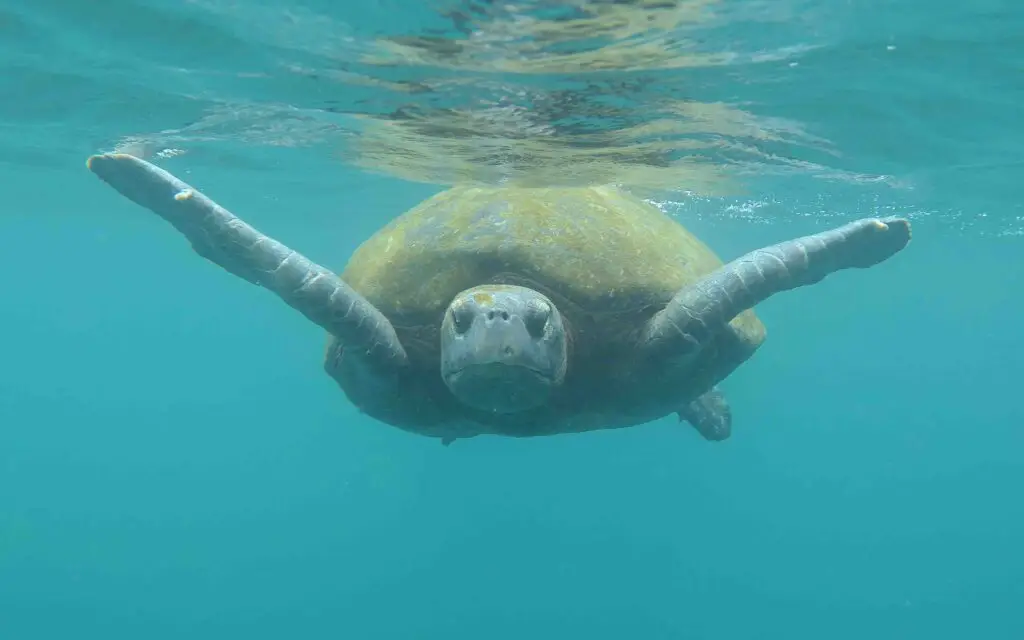
Sampling and Health Monitoring of Critically Endangered Species
During their stay in Ecuador, veterinarians from the Valencia Aquarium conducted health sampling on 50 Galápagos sea lions (Zalophus wollebaeki), an endemic species of the archipelago that is critically endangered. Additionally, several hawksbill turtles (Eretmochelys imbricata), the most threatened species on the planet, were fitted with satellite tracking devices to understand their movements and potential connections with other populations. This will provide valuable information to the scientific community about their migratory routes and the possible spread of diseases.
“Hawksbill turtles are a critically endangered migratory species. That’s why all the information we can gather about this species at this time contributes to its conservation,” explains Juan Pablo Muñoz, professor at USFQ Galápagos and researcher at GSC. Regarding the partnership with the Oceanogràfic Foundation, he mentions that it “expands the level of expertise in wildlife veterinary care, allowing us to take better action to preserve this species.”
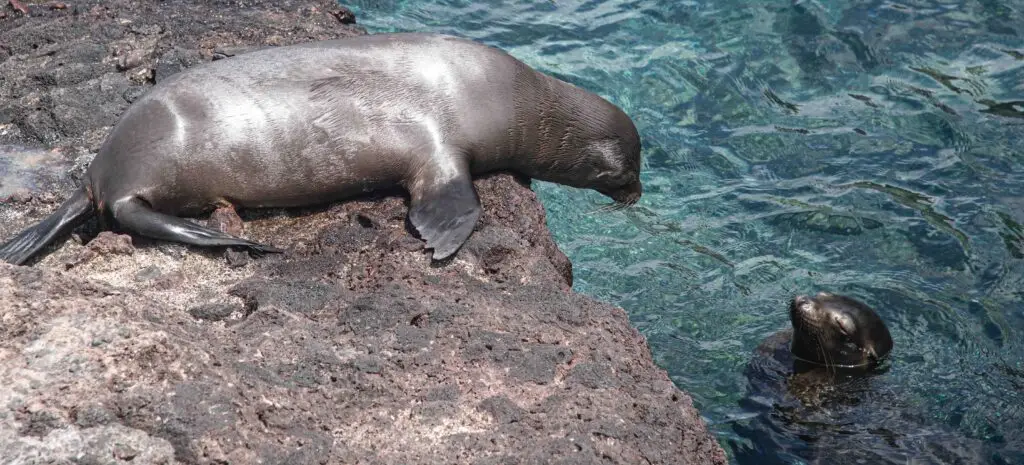
During September, October, and up to December 2023, several monitoring activities for coastal marine birds affected by avian influenza (H5-N1) will be carried out in San Cristóbal. To accomplish this, the Oceanogràfic Foundation contributes veterinary personnel, equipment, and materials to work closely with scientists from USFQ and GNP to gain a better understanding of the situation of the affected wildlife.
The joint conservation program, which includes health surveillance activities and knowledge transfer, aims primarily to establish a baseline of health to aid in the preservation and protection of these critically endangered species vital for biodiversity conservation in the Galápagos Islands. The next steps include improving infrastructure for the study and healthcare of wildlife in the GSC and expanding the monitoring program to other aquatic mammals.
It is expected that the results of this job will have a positive impact on the local populations, the scientific community, and the tourism industry, to maintain sustainable development in one of the most well-preserved archipelagos on the planet.

